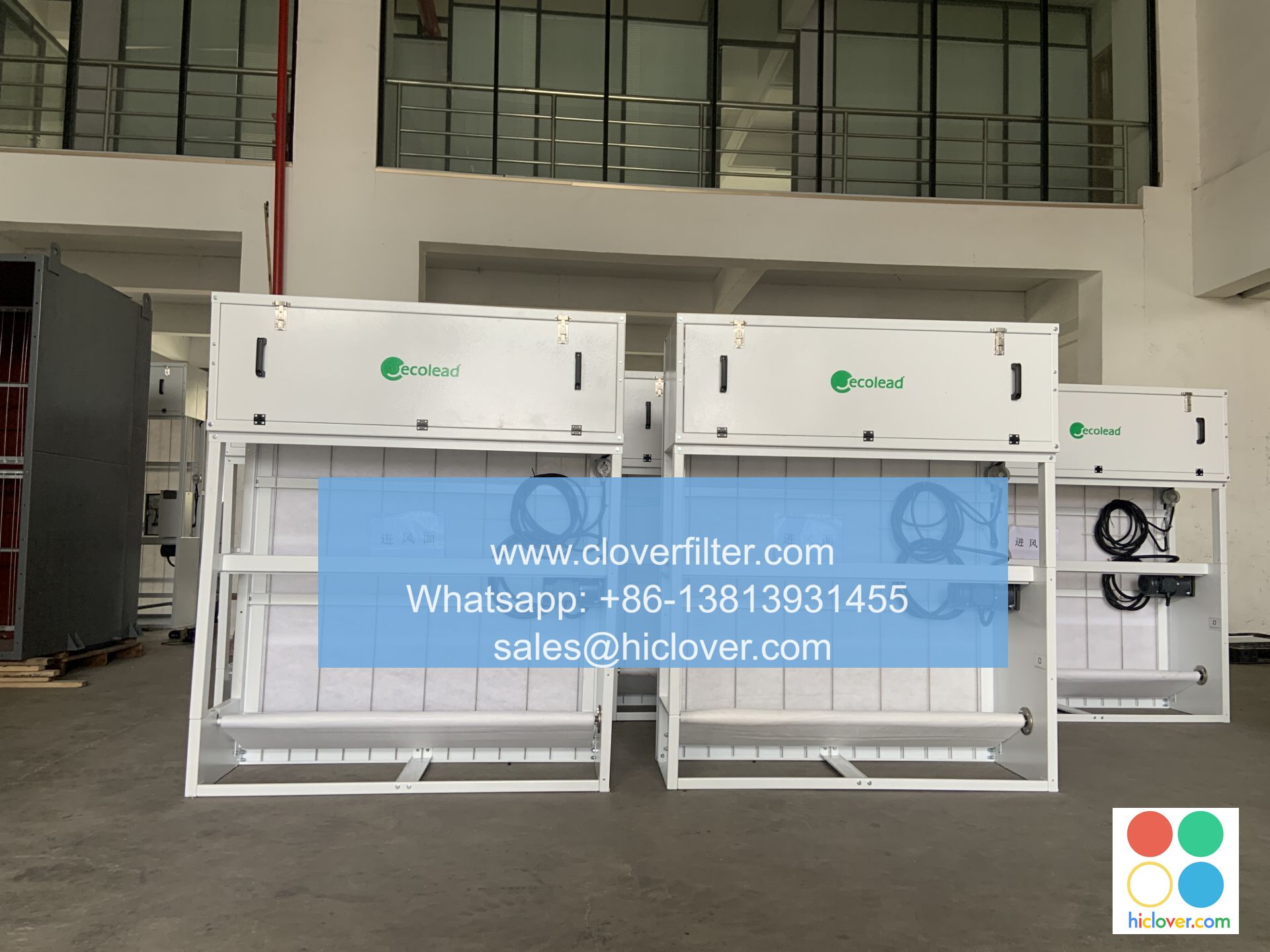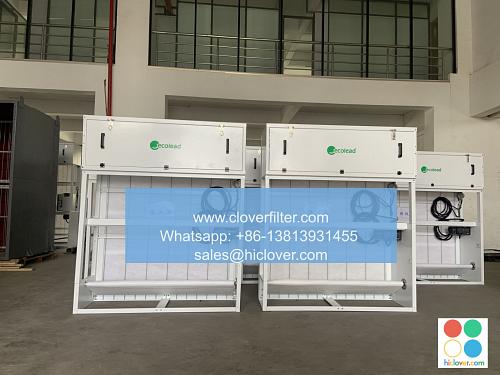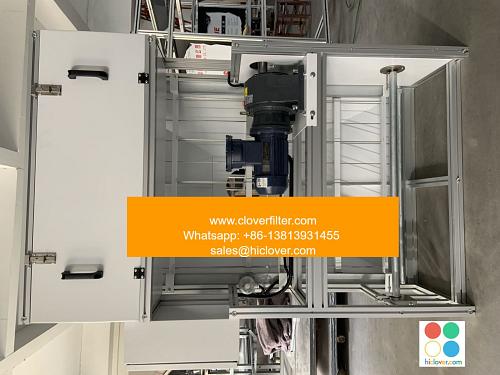How Automatic Roll Air Filters Can Help Reduce Energy Consumption in Alberta Oil and Gas Facilities

Alberta’s oil and gas facilities are among the largest energy consumers in the province. The extraction, processing, and transportation of oil and gas require significant amounts of energy, which can lead to high operating costs and environmental impacts. One often-overlooked area for energy savings is the air filtration systems used in these facilities. Traditional air filters can be inefficient and require frequent replacement, resulting in increased energy consumption and waste. However, automatic roll air filters can help reduce energy consumption in Alberta oil and gas facilities.
Traditional air filters use a fixed-media design, which can become clogged with debris and particulate matter over time. As the filter becomes more clogged, the fan or blower must work harder to draw air through the filter, resulting in increased energy consumption. In contrast, automatic roll air filters use a continuous roll of filter media that is automatically advanced as the filter becomes dirty. This design ensures that the filter is always operating at peak efficiency, reducing the energy required to draw air through the system.
Automatic roll air filters can also help reduce energy consumption by minimizing the need for frequent filter replacements. Traditional air filters typically need to be replaced every 1-3 months, depending on the application and operating conditions. This can result in significant waste and disposal costs, as well as the energy required to manufacture and transport replacement filters. Automatic roll air filters, on the other hand, can operate for up to 12 months or more without requiring replacement, reducing the overall cost and environmental impact of the air filtration system.
In addition to reducing energy consumption and waste, automatic roll air filters can also help improve indoor air quality in Alberta oil and gas facilities. By providing a consistent and high-level of filtration, these systems can remove particulate matter, gases, and other contaminants from the air, creating a healthier and safer working environment for employees. This can be especially important in oil and gas facilities, where workers may be exposed to hazardous chemicals and other airborne contaminants.
The benefits of automatic roll air filters can be significant, but it’s also important to consider the potential challenges and limitations of these systems. For example, automatic roll air filters may require more initial capital investment than traditional air filters, although they can provide long-term cost savings through reduced energy consumption and extended filter life. Additionally, these systems may require more maintenance and upkeep than traditional air filters, as the roll of filter media must be periodically replaced and the system must be cleaned and inspected to ensure optimal performance.
Despite these challenges, many Alberta oil and gas facilities are already turning to automatic roll air filters as a way to reduce energy consumption and improve indoor air quality. For example, a recent study by the Alberta Energy Regulator found that the use of automatic roll air filters in oil and gas facilities can reduce energy consumption by up to 30%, while also reducing greenhouse gas emissions and other environmental impacts. Similarly, a case study by a major oil and gas company found that the installation of automatic roll air filters in one of its facilities resulted in a 25% reduction in energy consumption and a 40% reduction in filter replacement costs.
In conclusion, automatic roll air filters can be a highly effective way to reduce energy consumption in Alberta oil and gas facilities. By providing a consistent and high-level of filtration, these systems can minimize the energy required to draw air through the filter, while also reducing waste and improving indoor air quality. While there may be some initial challenges and limitations to consider, the long-term benefits of automatic roll air filters make them an attractive option for oil and gas facilities looking to reduce their energy consumption and environmental impact.
FAQs
Q: How do automatic roll air filters work?
A: Automatic roll air filters use a continuous roll of filter media that is automatically advanced as the filter becomes dirty. This design ensures that the filter is always operating at peak efficiency, reducing the energy required to draw air through the system.
Q: What are the benefits of using automatic roll air filters in Alberta oil and gas facilities?
A: The benefits of using automatic roll air filters in Alberta oil and gas facilities include reduced energy consumption, minimized waste and disposal costs, and improved indoor air quality.
Q: How much can automatic roll air filters reduce energy consumption in Alberta oil and gas facilities?
A: According to a recent study by the Alberta Energy Regulator, the use of automatic roll air filters in oil and gas facilities can reduce energy consumption by up to 30%.
Q: What are some potential challenges and limitations of using automatic roll air filters?
A: Potential challenges and limitations of using automatic roll air filters include higher initial capital investment, more maintenance and upkeep requirements, and the need for periodic replacement of the roll of filter media.
Q: Are automatic roll air filters suitable for all types of oil and gas facilities?
A: Automatic roll air filters can be suitable for a wide range of oil and gas facilities, including extraction, processing, and transportation facilities. However, the specific application and operating conditions should be carefully considered to determine the most effective and efficient air filtration solution.


